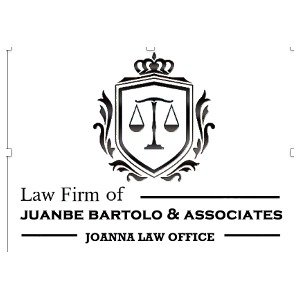Best Appeal Lawyers in Baguio City
Share your needs with us, get contacted by law firms.
Free. Takes 2 min.
List of the best lawyers in Baguio City, Philippines
About Appeal Law in Baguio City, Philippines
The appeal law in Baguio City functions similarly to the rest of the Philippines, and forms an essential part of the legal justice system. Once a court has rendered a decision in a case, an aggrieved party with legitimate grounds may file an appeal in a higher court to review the lower court's decision. The appeal process can be complex and involves a thorough understanding of laws, court procedures, and detailed paperwork. It's important for appellants to consult with a competent lawyer to assist them throughout the process.
Why You May Need a Lawyer
Navigating appeal proceedings can be challenging and have serious consequences. A lawyer can help you understand the complexities, prepare the necessary documents, and represent you properly. Some common situations where you may need a lawyer include when you're unsatisfied with the verdict of a lower court, when you believe your case was handled improperly, or when there are legal errors you wish to question. Because the appeal process is time-sensitive, it's essential to seek legal advice promptly.
Local Laws Overview
Appeal laws in Baguio City follow the national laws outlined in the Philippine Rules of Court. Some key principles regard the timeframe for filing an appeal, which is typically within 15 days after notice of the judgment or final order appealed from. If a record on appeal is required, the filer has 30 days to submit it. Also, note that not all decisions are appealable, such as those of the Small Claims Court. There are specific rules and technicalities involved that a lawyer can better explain.
Frequently Asked Questions
When can I file an appeal?
Generally, an appeal can be filed within 15 days after the appellant receives notice of judgment or final order. If a record is required, this is extended to 30 days.
Can I present new evidence in an appeal?
No, appeals courts only review the proceedings of the lower court and do not accept fresh evidence unless it falls into an established exception.
Can all decisions be appealed?
No, not all decisions are appealable. For instance, cases decided by the Small Claims Court cannot be appealed.
How long does the appeal process take?
The duration varies, but the appeal process is typically longer than initial litigation and may take several months or even years.
Where should I file my appeal?
Appeals are usually filed at the court that made the initial decision, but it's conducted by the higher court, like the Court of Appeals or the Supreme Court.
Additional Resources
The Judiciary portal of the Baguio City Government provides valuable information about local courts. The website of the Supreme Court of the Philippines also offers resources and updates on legal proceedings and the justice system. Also, the Integrated Bar of the Philippines-Baguio Benguet Chapter is a mandatory organization for Philippine lawyers offering legal aid services.
Next Steps
If you require legal assistance in appeal, start by seeking advice from a lawyer with experience in appeals. Compile all documents relating to your case, including original court decisions and orders. Remember to act promptly as appeals have stringent time limits. Keep all communication with your lawyer organized, and ask about your chances of success and all possible legal strategies.
Lawzana helps you find the best lawyers and law firms in Baguio City through a curated and pre-screened list of qualified legal professionals. Our platform offers rankings and detailed profiles of attorneys and law firms, allowing you to compare based on practice areas, including Appeal, experience, and client feedback.
Each profile includes a description of the firm's areas of practice, client reviews, team members and partners, year of establishment, spoken languages, office locations, contact information, social media presence, and any published articles or resources. Most firms on our platform speak English and are experienced in both local and international legal matters.
Get a quote from top-rated law firms in Baguio City, Philippines — quickly, securely, and without unnecessary hassle.
Disclaimer:
The information provided on this page is for general informational purposes only and does not constitute legal advice. While we strive to ensure the accuracy and relevance of the content, legal information may change over time, and interpretations of the law can vary. You should always consult with a qualified legal professional for advice specific to your situation.
We disclaim all liability for actions taken or not taken based on the content of this page. If you believe any information is incorrect or outdated, please contact us, and we will review and update it where appropriate.








